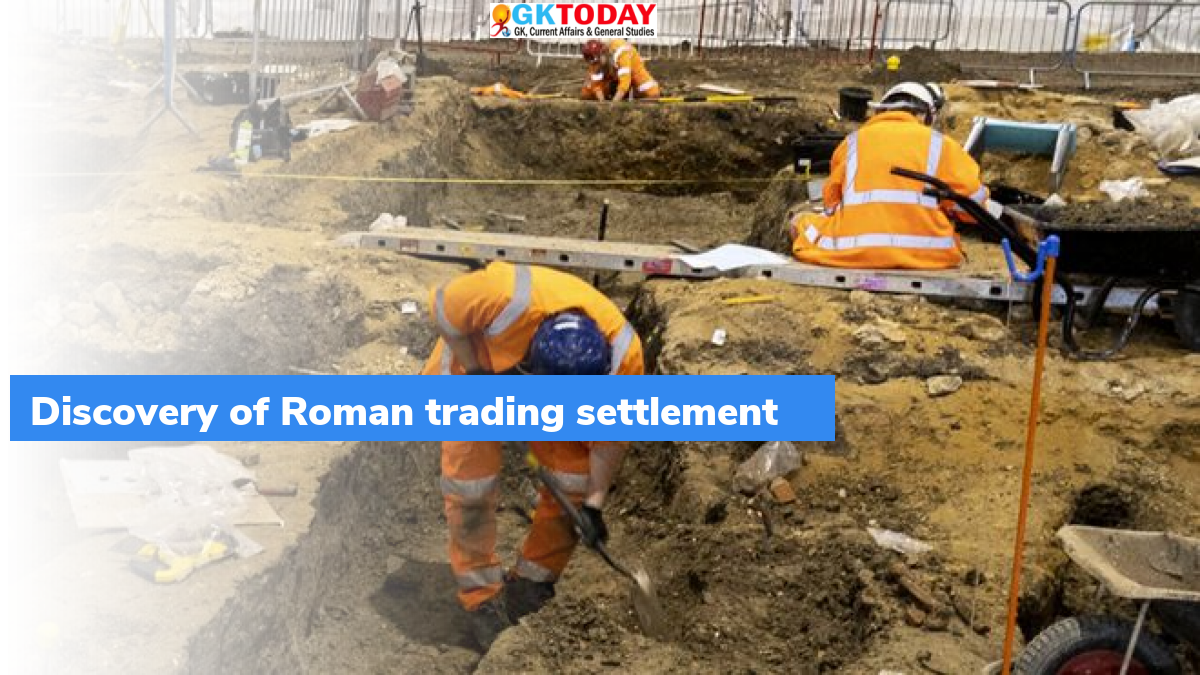UK HS2: Discovery of Roman trading settlement
HS2 archaeologists recently uncovered a wealthy Roman trading settlement near a village in South Northamptonshire.
Highlights
- The team of around 80 archaeologists from MOLA Headland Infrastructure, are involved in excavating an Iron Age village
- The iron village was developed into a wealthy Roman trading settlement.
- Presence of an archaeological site in this area has been known since 18th century.
Original use of settlement
- Original use of the settlement started in the Iron Age. Then this village was formed of over 30 roundhouses. These houses have been uncovered alongside an Iron Age Road.
- The site is known as Black grounds, because black soil is found there.
- It is located near the villages of Edgcote and Chipping Warden.
- These houses are believed to have been established in 400 BC.
- Settlement was developed into a wealthy Roman trading town.
Expansion of settlement
Discovery highlights that, settlement expanded over time. It became more prosperous during the Roman period, with the construction of new stone buildings and roads. Team have uncovered a 10m wide Roman road, which is described as exceptional in its size.
Other Findings
- HS2 archaeologists also found evidence of kilns, workshops, fiery red-coloured earth and several “beautifully preserved wells”.
- It indicates that activities of bread-making and metal work occurred in that time.
- They also found coins, glass vessels, jewellery, highly decorative pottery, and evidence of make-up.
- Traces of the mineral galena, lead sulphide, was found. This substance was crushed and mixed with oil as make-up.
Roman Empire
Roman Empire was the post-Republican period of ancient Rome. It comprised of large territorial holdings around the Mediterranean Sea in Europe, Western Asia and Northern Africa.
Month: Current Affairs - January, 2022
Category: Art & Culture Current Affairs • International / World Current Affairs








